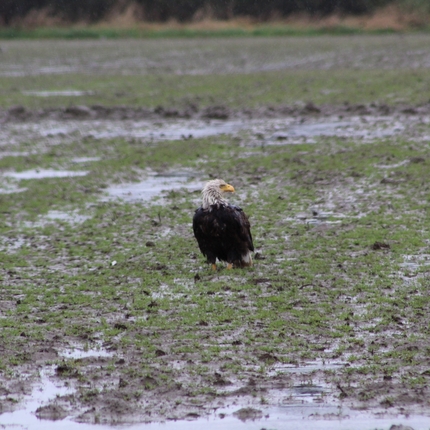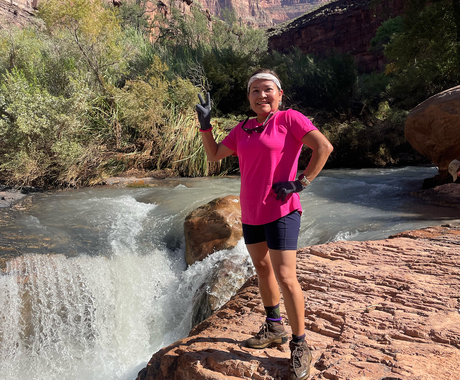By Jordan Rasmussen, former staff member
Across Nebraska and Iowa, farmers, ranchers, and rural communities have been standing strong in the face of rising floodwaters. As producers rush to rescue livestock, property, equipment, and more, many may find themselves asking what resources are available after this historic natural disaster. Providing farmers and ranchers with resources in times of need is a crucial component of the work we do at the Center for Rural Affairs. As we work to rebuild our vibrant rural communities after this disaster, we know that many growers may need help—if you are a farmer or rancher in need, here are a few resources for you:
Farm Aid
Farm Aid is an organization whose mission is to keep family farmers on the land. The organization has started a family farm disaster fund to accept donations. Farm Aid recommends farmers and ranchers follow these eight steps after a natural disaster:
- DOCUMENT EVERYTHING
- “After a disaster, only physical safety is more urgent than documenting the damage. Collect photos, notes, descriptions, and keep receipts and anything else that may help prove what happened on the farm to someone who’s never been there.”
- “After a disaster, only physical safety is more urgent than documenting the damage. Collect photos, notes, descriptions, and keep receipts and anything else that may help prove what happened on the farm to someone who’s never been there.”
- CONTACT AGENCIES RIGHT AWAY
- “The agencies that you will deal with for the disaster, primarily Federal Emergency Management Agency (FEMA) and U.S. Department of Agriculture (USDA), need to be contacted as soon as possible. This is especially true for USDA if you have not worked with them in the past. Keep a record of all contacts with people from agencies, insurance companies, contractors, and anyone else involved in the recovery effort.”
- “The agencies that you will deal with for the disaster, primarily Federal Emergency Management Agency (FEMA) and U.S. Department of Agriculture (USDA), need to be contacted as soon as possible. This is especially true for USDA if you have not worked with them in the past. Keep a record of all contacts with people from agencies, insurance companies, contractors, and anyone else involved in the recovery effort.”
- DEADLINES WILL COME FAST
- “All disaster programs have deadlines and some of them come very quickly. Check with your local agency to make sure of deadlines.”
- “All disaster programs have deadlines and some of them come very quickly. Check with your local agency to make sure of deadlines.”
- PROGRAMS USUALLY HAVE APPEALS PROCESSES
- “Disaster relief programs usually include an appeals process. If you are denied from a program, know that “no” is not always the final answer."
- “Disaster relief programs usually include an appeals process. If you are denied from a program, know that “no” is not always the final answer."
- RECOVERY IS A LONG PROCESS… AND OFTEN INCLUDES MENTAL HEALTH ISSUES
- “Recovery from a disaster will be a long process. As is the case with other traumatic experiences, people tend to go through stages as they react to a disaster, including anger, depression, fear, etc. Attention to the mental health of everyone involved is essential. Be patient and caring with yourself and others. Feeling like the stress is unbearable? Call the National Suicide Prevention Lifeline at 800.273.TALK (8255). You do not have to be suicidal to make the call!”
- “Recovery from a disaster will be a long process. As is the case with other traumatic experiences, people tend to go through stages as they react to a disaster, including anger, depression, fear, etc. Attention to the mental health of everyone involved is essential. Be patient and caring with yourself and others. Feeling like the stress is unbearable? Call the National Suicide Prevention Lifeline at 800.273.TALK (8255). You do not have to be suicidal to make the call!”
- SCAM ARTISTS WILL COME AROUND
- “Unfortunately, scam artists always arrive soon after a disaster. Be careful. Get work proposals in writing. Do not pay cash. Do not pay more than one-third of the cost up front. Do not let contractors or others force you to make a decision on the spot.”
- “Unfortunately, scam artists always arrive soon after a disaster. Be careful. Get work proposals in writing. Do not pay cash. Do not pay more than one-third of the cost up front. Do not let contractors or others force you to make a decision on the spot.”
- DISCRIMINATION IS ILLEGAL
- “The programs are available to all who are eligible. Discrimination is illegal. Each agency should have a discrimination complaint process.”
- “The programs are available to all who are eligible. Discrimination is illegal. Each agency should have a discrimination complaint process.”
- YOU CAN CALL FARM AID
- “Please know that you can call 800.FARM.AID at any time if you need emotional support or help with the details.”
Farm Rescue
Farm Rescue is an organization whose mission is to help farmers and ranchers who have experienced a major illness, injury or natural disaster by providing the necessary equipment and manpower to plant hay or harvest their crop. Livestock feeding assistance is also available to ranchers. The group is currently offering free hay delivery to farmers and ranchers impacted by the recent floods.
Those wanting to apply for assistance, sign up to be a volunteer CDL driver or make a monetary donation can visit Farm Rescue or call 701.252.2017. If you have any hay to donate, please contact Levi Wielenga, Operations Manager, at [email protected] or 712.389.1024.
Rural Advancement Foundation International-USA (RAFI)
RAFI is an organization that provides a variety of disaster assistance programs to farmers and ranchers in need. This group is known internationally for their expertise if helping farmers and ranchers navigate a natural disaster. Watch their webinar series, “Disaster Recovery Resource Videos,” here. RAFI also offers a step-by-step guide for farmers and ranchers who are documenting disaster loss on their operations.
Additional Resources
American Red Cross – Nebraska and Southwest Iowa
Iowa Beef Center - Iowa State University Extension and Outreach
Iowa Concern - 800.447.1885 (legal issues, finance, stress, and crisis/disaster)
Iowa Emergency Management Association
Internal Revenue Service (IRS) - The IRS is hosting a webinar titled, “Understanding Tax Relief for Disasters,” Thursday, March 21, at 1 p.m. You can register here.
Nebraska Dept. of Health and Human Services
If you or someone you know is being affected by the flood, counseling and information services are available. #NebraskaFlood | #NebraskaStrong pic.twitter.com/wfqlN7zdlf
— Nebraska DHHS (@NEDHHS) March 19, 2019
Nebraska Disaster Behavioral Health - 800.464.0258





